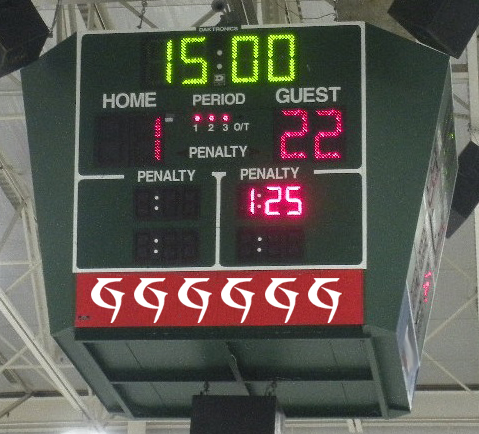Dominance vs. Sportsmanship: The Pros And Cons Of Running Up The Score

 When you were a kid dreaming about playing sports, you likely had fantasies about winning the big game by dominating your opponent with some ludicrous margin of victory.
When you were a kid dreaming about playing sports, you likely had fantasies about winning the big game by dominating your opponent with some ludicrous margin of victory.
Sure, winning 100-0 sounds great, but did you ever think about what that would actually mean?
Running up the score on an opponent is risky business and not everyone views a lopsided victory as an accomplishment. Just look at a recent example: In January, a California high school basketball coach was suspended for two games for “mercilessly running up the score” after his team won a contest 161-2.
How does winning like that affect your team and the rest of your season? What does demoralizing your opponent do to their team? Let’s take a look at some of the pros and cons of running up the score:
Pro: Don’t Ever Give Up
As the late, great Jimmy Valvano said in his famous 1993 ESPYs speech: “don’t give up, don’t ever give up.”
It’s important for athletes — particularly young athletes — to learn that sports require persistence and the ability to overcome obstacles. Things aren’t always going to go their way and winning big once doesn’t guarantee winning big often. Points, games, seasons and careers change on a dime, and athletes must know how to always keep pushing and striving, rather than give up or become complacent.
Con: Karma Is Real
At pretty much every level of play, no matter how badly you beat a team, it is inevitable that you’re going to have to face that team again. And just remember, competitive people don’t forget their bad losses.
Your opponents shouldn’t need more reason to want to beat you, so be weary of giving them extra motivation. You never know what kind of monster you might be creating for yourself.
Pro: A Boost Of Confidence
Along with matching team apparel and personalized gear, winning — and winning big — is the easiest way to provide a huge confidence boost to your team.
It feels good to be the best, and there’s no better way to feel like the best than by embarrassing an opponent on the field, court or ice. And feeling good and confident goes a long way toward continued success in sports.
Con: Winning, But Without Grace
And sure, confidence is important. But so is sportsmanship.
Winning big is great and may give your team a boost to make a postseason run, but there’s something to be said about being able to win with grace. Respecting your opponents is an important quality and one of the main reasons why running up the score is frowned upon.
Pro: Garbage Time Becomes Experimentation Time
As a coach, there actually are some benefits to running up the score. When a game gets out of hand, you have the opportunity to give back-ups and developmental players valuable game experience.
Maybe run a couple of new plays or ideas that you normally wouldn’t when the game is a bit tighter. Let your players try new things and hone their different skills. Letting your 7-foot center jack up threes or your RB run some snaps at QB may be showing off, but it may also prove valuable down the line.
Con: Too Much Garbage Time
While giving your second and third stringers the opportunity to play during a blowout is great — you never know when you’ll find your next superstar — you may run the risk of making your first team complacent and/or rusty.
If your team is really good and is able to consistently put games out of reach early, your first string and star players may end up spending too much time on the sidelines. That may lead to them feeling “too big for their britches,” as they expect to blow out every team and that may haunt them if they need to play from behind later in the season.
When you play to run up the score on another team, you forget how to play to win.
While there are pros and cons to blowing out your opponent, do you think it’s right to run up the score, or is that something we should look down on? Let us know in the comments.







Well said! Here here! Building sound minds and bodies on and off the pitch is the objective. The fathers who coach the kids are also coaching future fathers who will coach future kids… and future generals, and future politicians, and future policemen and etc.